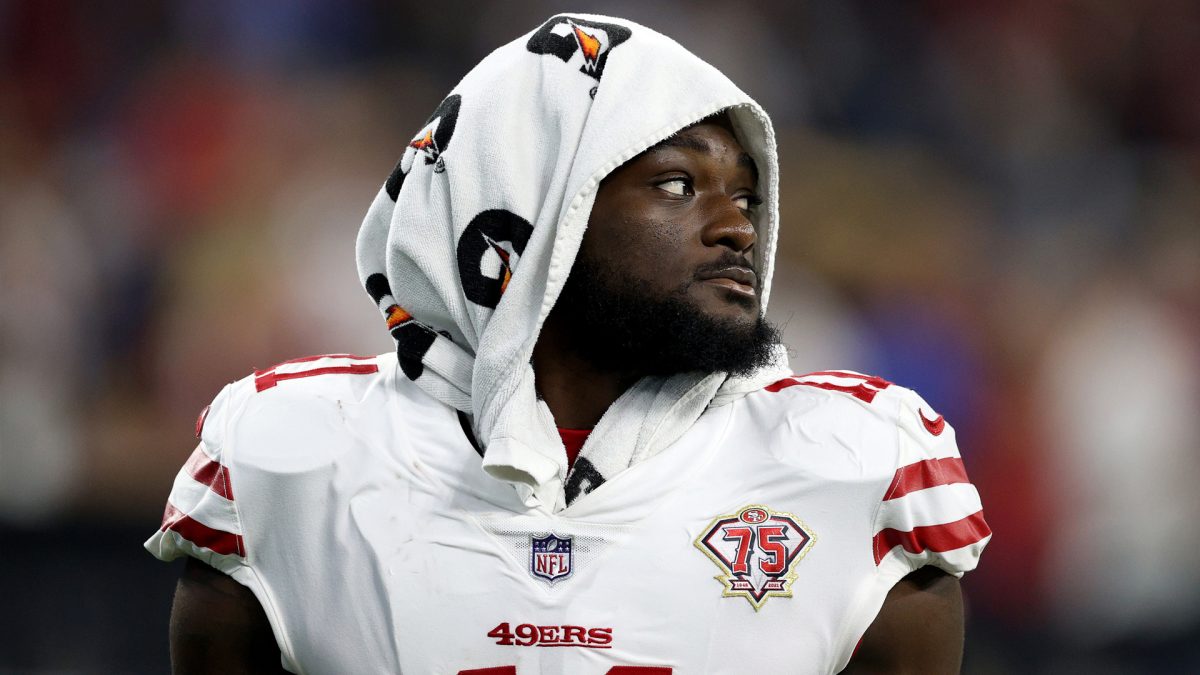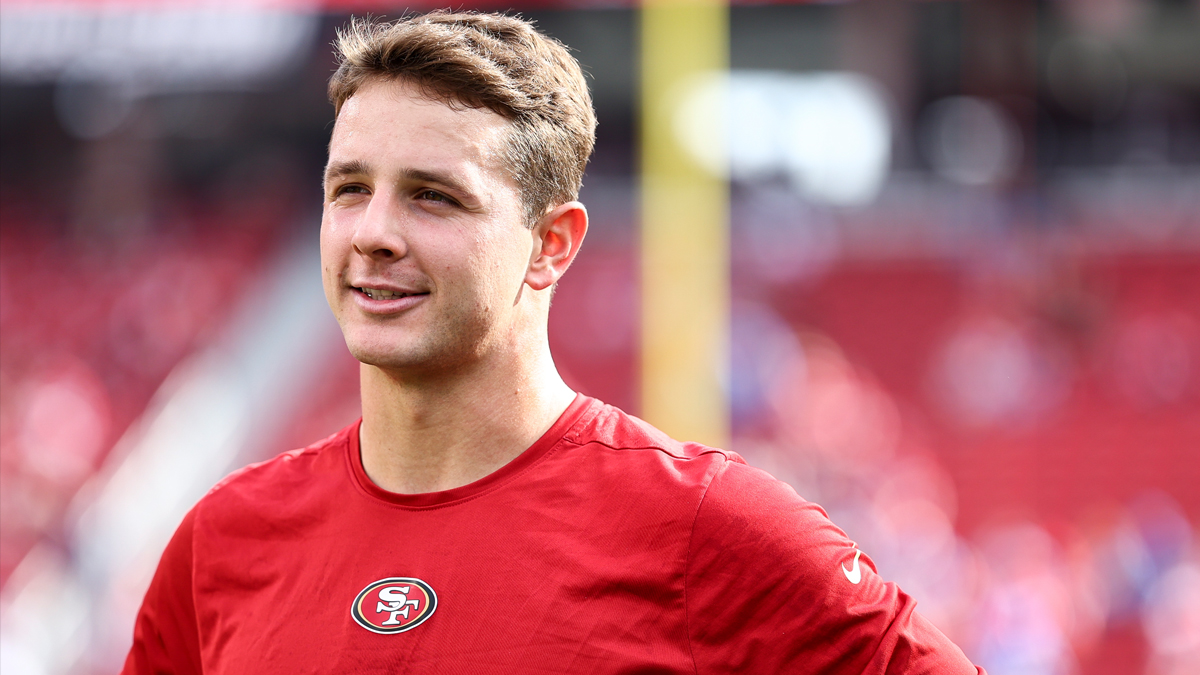Programming note: Watch "Race in America: A Candid Conversation on Friday, August 14 on NBC Sports Bay Area after "Giants Postgame Live."
Whether out of indifference to candidates or as an act of passive rebellion against an unjust sociopolitical system, it’s not uncommon that many Black Americans, particularly among those under 30, dismiss the value of voting.
They tend not to find more reasons to sit out than to sit in. It’s a sentiment understood by 49ers linebacker Fred Warner and A’s utility player Tony Kemp, panelists on Episode 13 of “Race in America: A Candid Conversation,” airing on NBC Sports Bay Area on Friday night.
Stay in the game with the latest updates on your beloved Bay Area and California sports teams! Sign up here for our All Access Daily newsletter.
Neither Warner, 23, nor Kemp, 28, bothered to use their ballot in 2016 – and they were joined on the sideline by millions of others.
Nearly four years later, both say they will vote – and, based on new registrations, they’ll be joined by millions of others. Experts are projecting 2020 to have the largest and most diverse turnout in American history.
Whereas Warner's new outlook is largely a matter of increased awareness and education, Kemp drew inspiration from a movie.
“I've always been a person that kind of stayed out of politics and just worried about baseball,” he says. “But three years ago, in the offseason, I watched ‘Selma,’ and watching that movie kind of really turned myself into what I needed to be.”
San Francisco 49ers
The movie went into wide release in January 2015 and was rereleased in March – the 50th anniversary month of the march across the Edmund Pettus bridge made memorable by the brutal attacks by law enforcement on those, including then-Student Nonviolent Coordinating Committee leader John Lewis, seeking the right to vote.
“What Blacks had to go through just for human rights and just to vote,” says Kemp, who spent three years at prestigious Vanderbilt University. “And especially everything that John Lewis got into, the ‘good trouble,’ all those things are just huge.”
[RACE IN AMERICA: Listen to the latest episode]
Voting can be a daunting process, particularly in local elections. It takes considerable time to research the records and principles of candidates that rarely, if ever, appear on TV or radio. Social media makes it easier now than it was 20 years ago, but the credibility of what one finds on Facebook or Instagram or Twitter, can be called into question.
Yet information is by far the most significant factor in making a knowledgeable vote. Warner cites this is as being at the center of his political evolution.
“I had this mindset of like, ‘Well I'm not very educated on it.’ I didn't know who to vote for,” he says. “I was confused about it. I was like, ‘Well I don't want to vote for the wrong person. And also, I didn't feel like my vote really counted. I was like, ‘I'm just one person. What is my vote going to mean, especially if I'm not educated about it?
“Now, I realize I have just as much of a responsibility to vote as anybody else. And in order to make an intelligent and educated vote, I need to make sure I'm doing the work outside of just playing football and going home and watching TV. I’ve got to actually put some time in and make the right decision.”
To that end, the NFL last week announced the formation of “NFL Votes,” a “non-partisan initiative that will support and encourage the civic engagement and voting of NFL players, legends, club and league personnel,” as well as NFL fans.
The project is designed, theoretically, to bolster “Inspire Change,” the league’s social justice reform program, which in partnership with the Players Coalition has had varying degrees of impact.
Sports leagues, franchises and athletes are seizing upon the moment to become voting advocates. The hope is that decisions are based on enlightenment and activation.
“The biggest thing right now is just education,” Warner says. “Educating yourself on who's up for election and what they stand for and everything and making the best decision possible.”
[RELATED: Warner believes Harris pick for VP is "big deal"]
Kemp is taking to Twitter and Instagram, urging people to use their vote. He and his wife, Michelle, recently mailed in county absentee ballots and have a dedicated plan to be at the polls in November.
“That's where (change) starts,” he says. “I think people need to be more educated on it. Hey, if you want something a certain way, and a governor or whoever believes in your certain way, that's who you vote for. I think people just need to start going for it.”
There is a clear divide within our national borders. Current government leadership has been aggressively partisan, one side clinging to old norms and the other generating a potent movement for new norms.
For some, it takes tragedy, such as those that killed George Floyd, Ahmaud Arbery and Breonna Taylor, for people to get involved. For others, it’s as simple as a story or movie well told.


